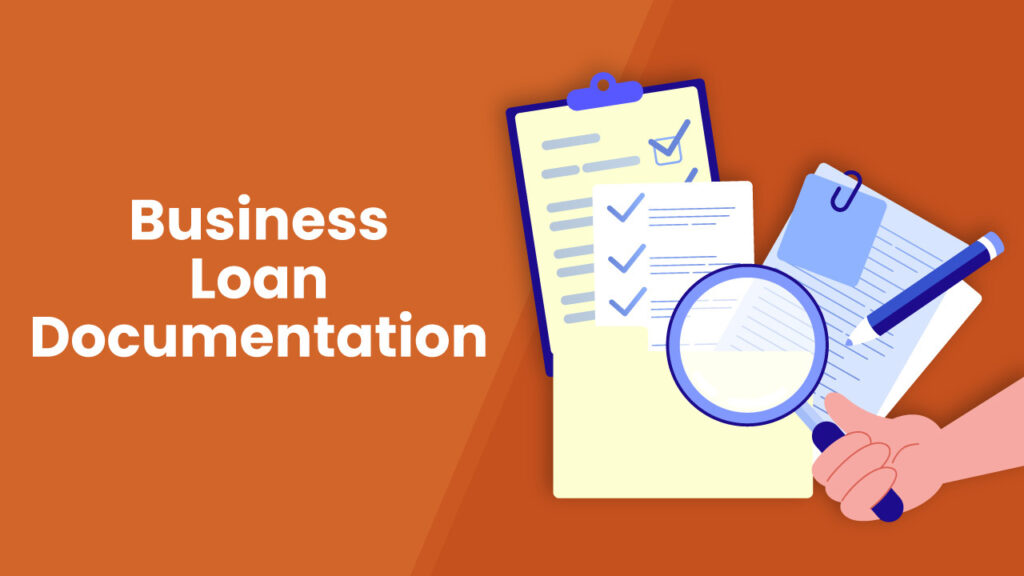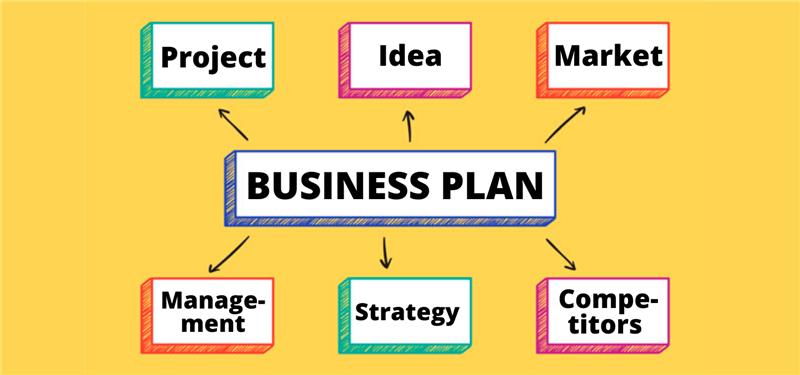Securing a business loan can be a turning point for many companies looking to grow, stabilize cash flow, or seize a new opportunity. But one common obstacle that delays or derails the loan process is poor documentation. When your paperwork is incomplete, inaccurate, or disorganized, it slows down the lender’s ability to make a decision and can even lead to rejection.
In this article, we’ll explore the essential business loan documents required by most lenders, how to prepare them properly, and tips to ensure a faster approval process.
Why Business Loan Documentation Is Important

Speeds Up Approval Time
Well-prepared documentation allows lenders to quickly assess your business’s financial health and risk, leading to faster decision-making and funding.
Builds Lender Confidence
Lenders are more likely to trust and approve businesses that demonstrate professionalism and financial transparency through proper documentation.
Reduces the Risk of Rejection
Incomplete or incorrect documents are a common reason for loan denial. Organizing and verifying your paperwork minimizes these risks.
Main Categories of Business Loan Documents
Most lenders require documents that fall into three broad categories:
- Business Information Documents
- Financial Records
- Legal and Compliance Documents
Each category is important and helps create a complete picture of your business’s creditworthiness.
Business Information Documents
These documents give lenders an overview of your business’s structure, purpose, and legitimacy.
Business Plan

A strong business plan outlines your company’s goals, strategies, products or services, market positioning, and how you plan to use the loan. Lenders want to see a clear and realistic growth strategy.
Business Licenses and Permits
These are proof that your business operates legally in your state or industry. These might include general business licenses, health permits, zoning approvals, or industry-specific certifications.
Articles of Incorporation or Organization
These documents show your business’s legal structure (e.g., LLC, partnership, or corporation). They confirm ownership roles and help lenders understand the organizational setup.
Employer Identification Number (EIN)
This number is assigned by the IRS and serves as your business’s tax ID. It’s required for tax filings and financial paperwork.
Financial Records

Your business’s financial documents show whether you can afford to repay the loan and how well you manage your finances.
Bank Statements
Most lenders require at least 6–12 months of recent bank statements. These provide insight into cash flow, account stability, and average balances.
Tax Returns
You’ll usually need to submit the last two years of business tax returns. Some lenders may also request personal tax returns if you’re a sole proprietor or closely held business.
Profit and Loss (P&L) Statement
This financial statement summarizes your revenues, costs, and expenses over a specific time frame. It shows whether your business is generating profit and how your revenue trends over time.
Balance Sheet
A balance sheet shows your business’s assets, liabilities, and equity at a given point. Lenders use it to assess your financial stability and leverage.
Cash Flow Statement
This document breaks down incoming and outgoing cash. It’s a key indicator of whether your business generates enough liquidity to cover loan payments.
Accounts Receivable and Accounts Payable Reports
These reports show outstanding invoices you are owed (receivables) and what you owe others (payables), offering a look at your short-term financial obligations and reliability.
Legal and Compliance Documents
Legal documents help lenders ensure your business is compliant with laws and has no outstanding legal risks that could interfere with repayment.
Business Contracts
If you have key customer contracts, supplier agreements, or service contracts, lenders may request them to understand your revenue sources and obligations.
Ownership and Equity Agreements
If you have partners, shareholders, or investors, documentation showing ownership stakes and decision-making authority is important, especially for large loans.
Existing Debt Documentation
If your business already has loans, lenders will need to see current balances, terms, and payment history to evaluate total debt obligations.
Personal Identification
A government-issued ID (driver’s license, passport, etc.) for each business owner with 20% or more equity is typically required to confirm identity.
Optional but Valuable Documents
While not always mandatory, including these can strengthen your application and help speed up funding.
Collateral Documentation
If the loan is secured, provide titles, appraisals, or receipts for the collateral. This could include real estate, vehicles, or business equipment.
Insurance Certificates
Lenders may want to verify that your business is insured against liability, property damage, or interruptions, which lowers their risk.
Business Credit Report
A good business credit report from Dun & Bradstreet or Experian shows you’ve handled past credit responsibly. Some lenders pull it automatically, but including a copy can be helpful.
Letters of Recommendation or Testimonials
Endorsements from trusted clients, vendors, or professionals who work with your business can build credibility and trust.
Tips to Organize Documents for Faster Loan Approval

Create a Document Checklist
List all the documents your specific lender requires and check off each item before submitting. Missing even one document can delay processing.
Label and Format Everything Clearly
Use descriptive names for digital files (e.g., “2024_Q1_Profit_Loss.pdf”) and organize them into folders by category.
Scan in High Resolution
All documents should be scanned in clear, legible quality. Avoid pictures from phones if possible. Use PDF format for consistency.
Ensure Consistency Across Documents
Numbers in your tax returns should align with financial statements. Discrepancies can raise red flags and trigger additional questions or document requests.
Keep Physical and Digital Backups
Even if you’re submitting online, it’s helpful to keep printed copies on hand for meetings or follow-ups.
How Different Lenders Handle Documentation
Banks and Credit Unions
Traditional lenders have the strictest documentation requirements. They often require a full business plan, multi-year financials, and a thorough credit check.
Online Lenders
Online platforms tend to have more flexible documentation requirements and faster processing times. Some only ask for bank statements and basic business verification.
SBA Lenders
SBA loans (Small Business Administration) offer favorable terms but require a significant amount of documentation, including special SBA forms and personal financial statements.
Common Mistakes to Avoid
- Submitting outdated or incomplete documents
- Leaving out liabilities or debt details
- Ignoring lender-specific requirements
- Providing inconsistent or incorrect financial data
- Failing to explain recent financial losses or irregularities
Benefits of Organized Documentation
- Faster loan approval and disbursement
- Higher chance of approval
- Better loan terms and interest rates
- Stronger lender relationships
- Professional presentation of your business
Also Read : Gold Loan Interest Rates: Tips For Finding The Best Deal
Conclusion
Getting a business loan doesn’t have to be a complicated process—if you’re well-prepared. Proper loan documentation shows that your business is organized, compliant, and financially sound. It speeds up the approval process, builds lender confidence, and increases your chances of securing the funding you need. Whether you’re applying for a traditional bank loan, an SBA loan, or funding from an online lender, having the right documents ready can make all the difference.
Start by creating a checklist based on your loan type, gather accurate and updated documents, and present them in a clear and organized manner. Fast funding is possible when your paperwork is right the first time.
Frequently Asked Questions (FAQs)
What is the most important document for a business loan?
The most important documents include your business plan, bank statements, tax returns, and financial statements like profit and loss and balance sheets.
How many months of bank statements are required for a business loan?
Most lenders require 6 to 12 months of bank statements to evaluate your cash flow and financial stability.
Can I get a business loan without financial statements?
It’s unlikely. Even online lenders require at least some basic financial documentation. If you’re a new business, projections and startup capital documentation may be needed instead.
Do I need personal documents for a business loan?
Yes, especially if you’re a sole proprietor or have significant ownership in the business. Personal ID, credit reports, and sometimes personal tax returns may be required.
How can I improve my chances of fast funding?
Organize all necessary documents ahead of time, ensure accuracy and consistency, and respond quickly to any lender follow-ups or requests.




